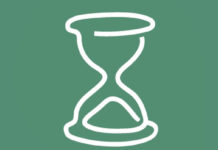ROME — It’s hard to find novelty in the prolific rivalry between Rafael Nadal and Novak Djokovic, which continued on Sunday at the Foro Italico with an ATP-record 54th match.
“Playing against Novak is always a special thing because it’s part of the history of this sport,” Nadal said. “No one match has been repeated more than this one in our history.”
But in the first set of the Italian Open final, which was the 142nd set the pair had cooked up together, there was suddenly a new dish on offer: a bagel.
After Nadal’s shockingly dominant 6-0 start — for those unaware, a scoreless set is called a bagel — Djokovic fought back to take the second set. But Nadal reasserted dominance in the third, closing out a 6-0, 4-6, 6-1 victory — earning his first title of the season.
Nadal, who had lost in the semifinals at his three previous clay court events this year, was visibly relieved when he again grasped a trophy, pulling it close and kissing it tenderly, a departure from his normal practice of biting the hardware.
Nadal said his relief had less to do with the tactile taking of a trophy than his feelings about his playing level.
“You were asking for titles? Finally, I have a title,” he said. “For me, the most important thing is feel myself playing well and feel myself healthy, with the energy that I need. If that happens, experience is that I going to fight for titles sooner or later, no? The main thing for me was recover my level, then the results should be there if that happens. Today was that case.”
Nadal’s level had been sharp throughout the week in the Italian capital, where he won for the ninth time. His proficiency allowed him to come into the final significantly more rested than Djokovic.
The efficiency was particularly brutal in Nadal’s four previous matches: of the 10 sets he won in the tournament, seven were by scores of 6-0 or 6-1, allowing him to spend four hours and 20 minutes less on court than Djokovic. Nadal also had the added benefit of playing the earlier match in Saturday’s semifinal slate, winning 5 hours 22 minutes before Djokovic could.
The writing was on the wall for this match, perhaps — at least if that wall has a clock on it.
“It’s always question do you want to speak about it or not,” Djokovic said when asked about his scheduling disadvantage. “I really always try to respect the win of my opponent. I don’t like to talk about it too much. It is what it is. The schedule can be improved, in my opinion.”
The first set lasted 39 minutes despite the lopsided score, including an 11-minute fifth game in which Nadal eventually broke for the third consecutive time.
Djokovic then held to open the second set and gained a foothold, matching Nadal from the baseline if struggling with the less called upon shots in his arsenal: dropshots, which he seemed to deploy because of fatigue, faltered frequently. Overhead smashes, long the weakest shot in Djokovic’s otherwise stellar repertoire, crashed badly into the net twice.
Still, Djokovic managed to level the match, but when Nadal broke in the opening game of the third set he was staggered, and took out his frustration with three slams of his racket into the clay beneath him.
Nadal closed out the match routinely, sandwiching dominance around Djokovic’s midmatch resilience, and claiming the victory when he forced a backhand volley error from Djokovic at the net.
Nadal’s emphatic win in Rome adds some familiarity to the outlook for the French Open, which begins in one week and will see Nadal looking for a record-extending 12th title.
Djokovic, often loquacious, summed up the Paris-bound pack succinctly.
“Nadal, number one favorite, without a doubt,” he said of the tournament where he will seek a fourth consecutive Grand Slam title. “Then, everyone else.”
The women’s side is considerably more crowded with plausible contenders. Seventh-ranked Karolina Pliskova added herself to the lengthening shortlist with a win in the women’s final of the Italian Open, beating Johanna Konta 6-3, 6-4.
Pliskova, who will surge up five spots to No. 2 in Monday’s rankings, had a poor 2-4 record in Rome before this year, and called her title “quite a miracle.”
“Nobody really gave me chance for this tournament — even, I think, me,” Pliskova said. “Before the tournament, I was not super confident, not thinking about the final at all. I was just happy with every match which I played.”
Pliskova’s win amplifies her name in the already crowded conversation about contenders for the upcoming French Open.
The three other WTA premier events on clay this year were won by three other players: Kiki Bertens in Madrid; Petra Kvitova in Stuttgart; Madison Keys in Charleston. Defending champion Simona Halep has had strong if not spectacular results this year; top-ranked Naomi Osaka is the winner of the last two Grand Slam events, but has yet to find similar success on clay.
And then, of course, there is 23-time Grand Slam singles champion Serena Williams, who has had a season plagued with physical issues but remains a daunting opponent for even the most in-form players.
To Konta, the unpredictability and unknowability of the women’s field heading into the French Open is “awesome.”
“The fact that nothing’s guaranteed, that makes sports exciting,” said Konta. “If you’re showing up to matches and you know 99 percent of the outcomes, it can get quite boring and repetitive.”
Source : NYtimes













